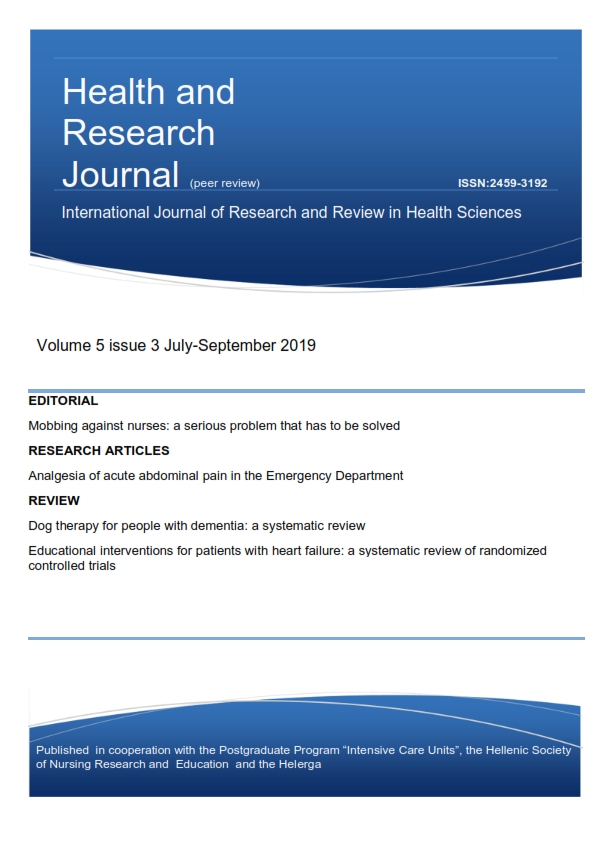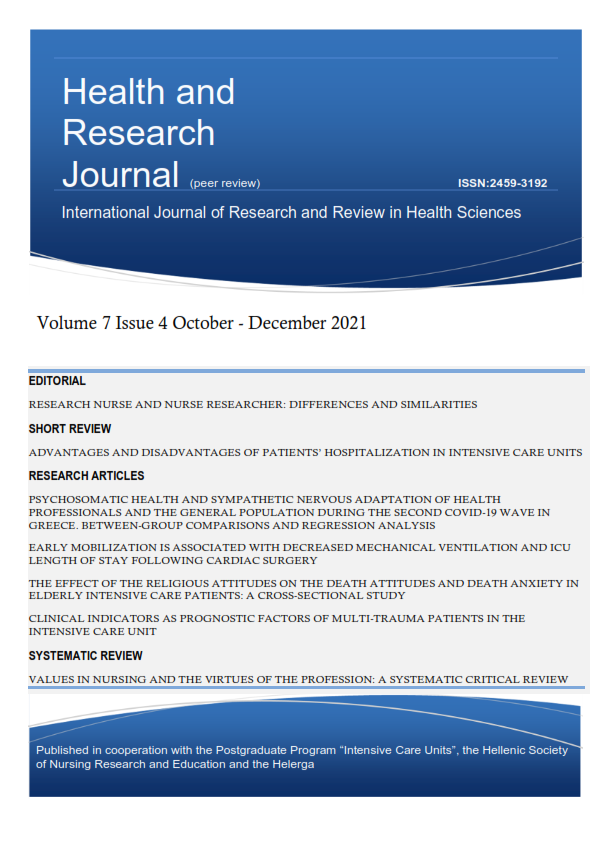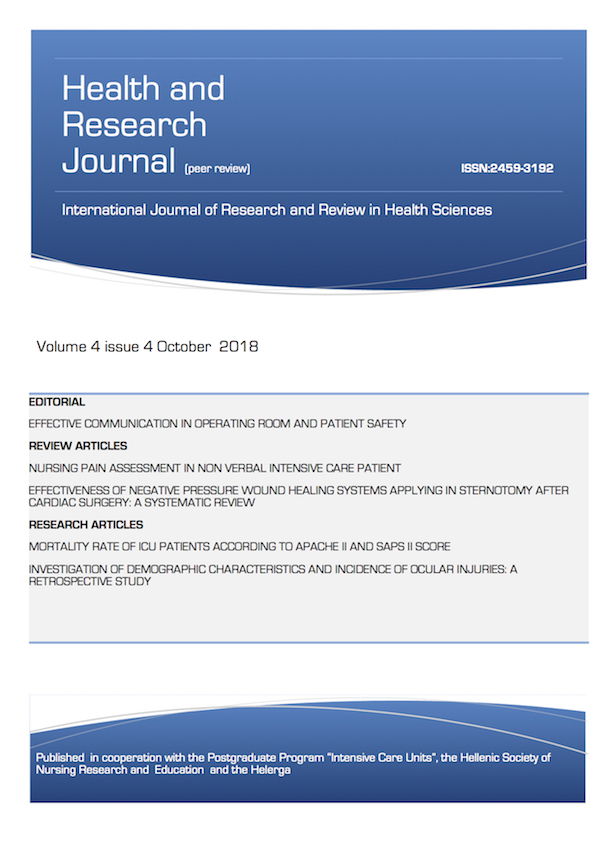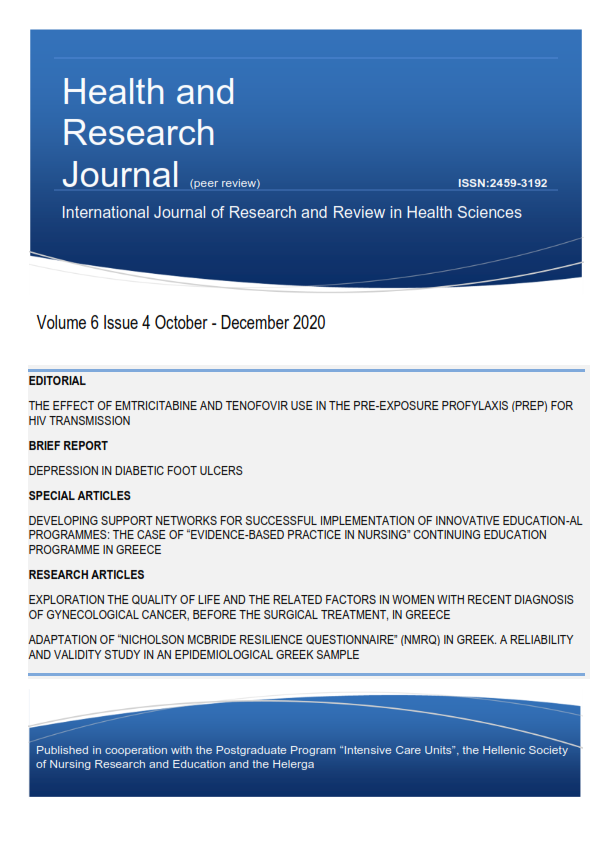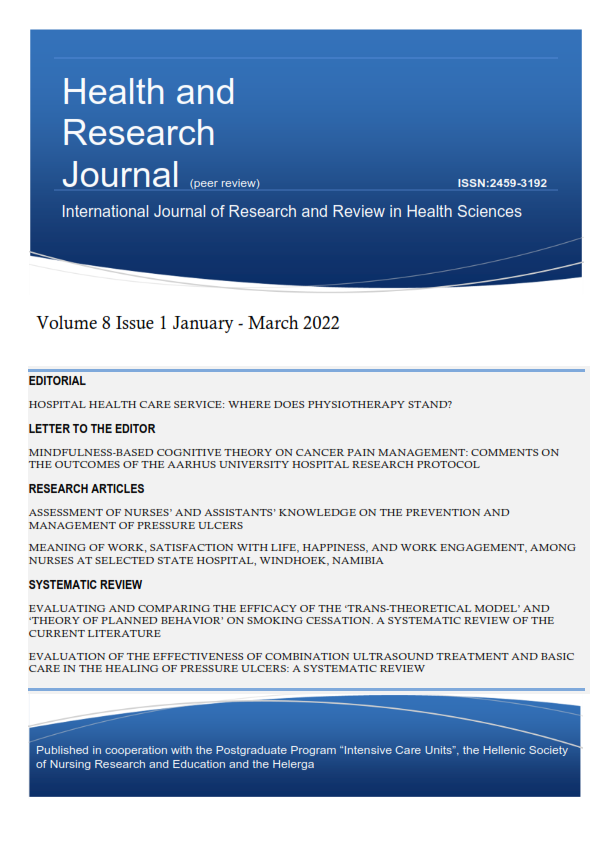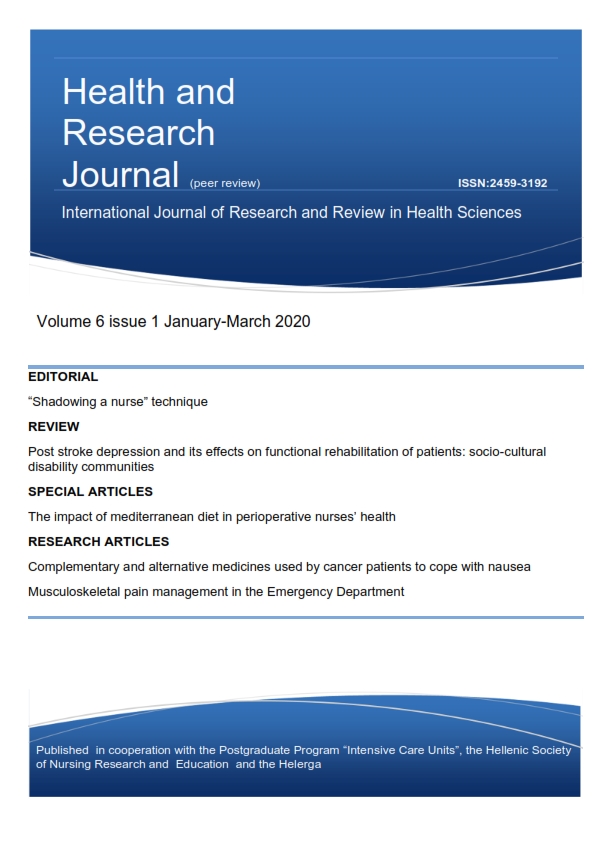Prevalence of familial hypercholesterolemia in Attica region, Greece
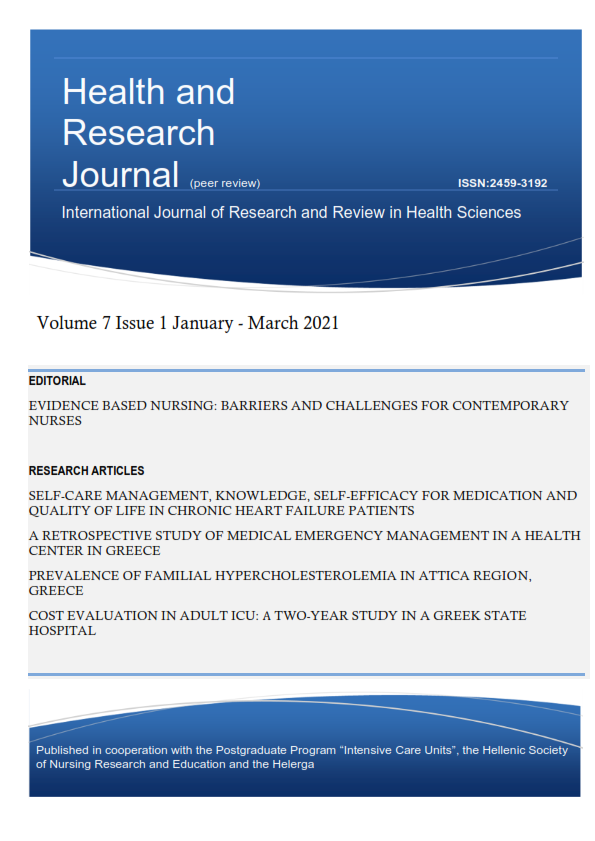
Abstract
Background: Dyslipidemias are one of the major modifiable risk factors for cardiovascular disease. Familial hypercholesterolemia (FH) is the most common genetic metabolic disorder; it is estimated that around 14-34 million people worldwide have FH but only 25% of FH patients have been diagnosed.
Aim: The aim of the present study was to explore the prevalence of FH in Attica region, Greece.
Methods: Attica region was divided into 8 regional units. A predesigned questionnaire was used to collect demographic and clinical data. Data analysis was performed by using the Statistical Package for the Social Sciences (SPSS), ver. 20.
Results: The studied sample consisted of 1578 Greek inhabitants of Attica region. The majority of the sample was women (59.9%). The mean age of the studied participants was 47.1 (±14.9) years. According to Simon Broome criteria, the probability of an FH diagnosis as unlikely is determined in 98.7% of the studied sample, probable in 0.8% of the participants or definite in 0.5% of the participants, based on this data, the prevalence of FH in Attica region, Greece is 1:200. Qualitative factors found to be associated with the onset of the disease were medication (p-value = 0.001) and hypolipidemic therapy (p-value = 0.001). The quantitative factors found to be associated with disease onset were body mass index (p-value = 0.044), and systolic (p-value = 0.001) and diastolic (p-value = 0.007) pressure.
Conclusions: Based on our data, the prevalence of FH in Attica region, Greece is 1:200. Early identification of contributing factors in FH development and proper treatment is vital and reduce the risk of premature and severe atherosclerotic disease.
Article Details
- How to Cite
-
Pavlatou, N., Rovina, N., Toylia, G., Kadda, O., Marvaki, C., Kapadochos, T., Kolovou, G., & Koutsoukou, A. (2021). Prevalence of familial hypercholesterolemia in Attica region, Greece. Health & Research Journal, 7(1), 26–38. https://doi.org/10.12681/healthresj.26096
- Section
- Original Articles
Copyright notice:
Authors retain copyright of their work and grant the Health and Research Journal the right of first publication.
License:
Articles are published under the Creative Commons Attribution 4.0 International License (CC BY 4.0). This license permits use, sharing, adaptation, distribution, and reproduction in any medium or format, including for commercial purposes, provided that appropriate credit is given to the author(s) and the original publication in this journal, a link to the license is provided, and any changes are indicated.
Attribution requirement:
Any reuse must include the article citation and DOI (where available), and indicate if changes were made.



